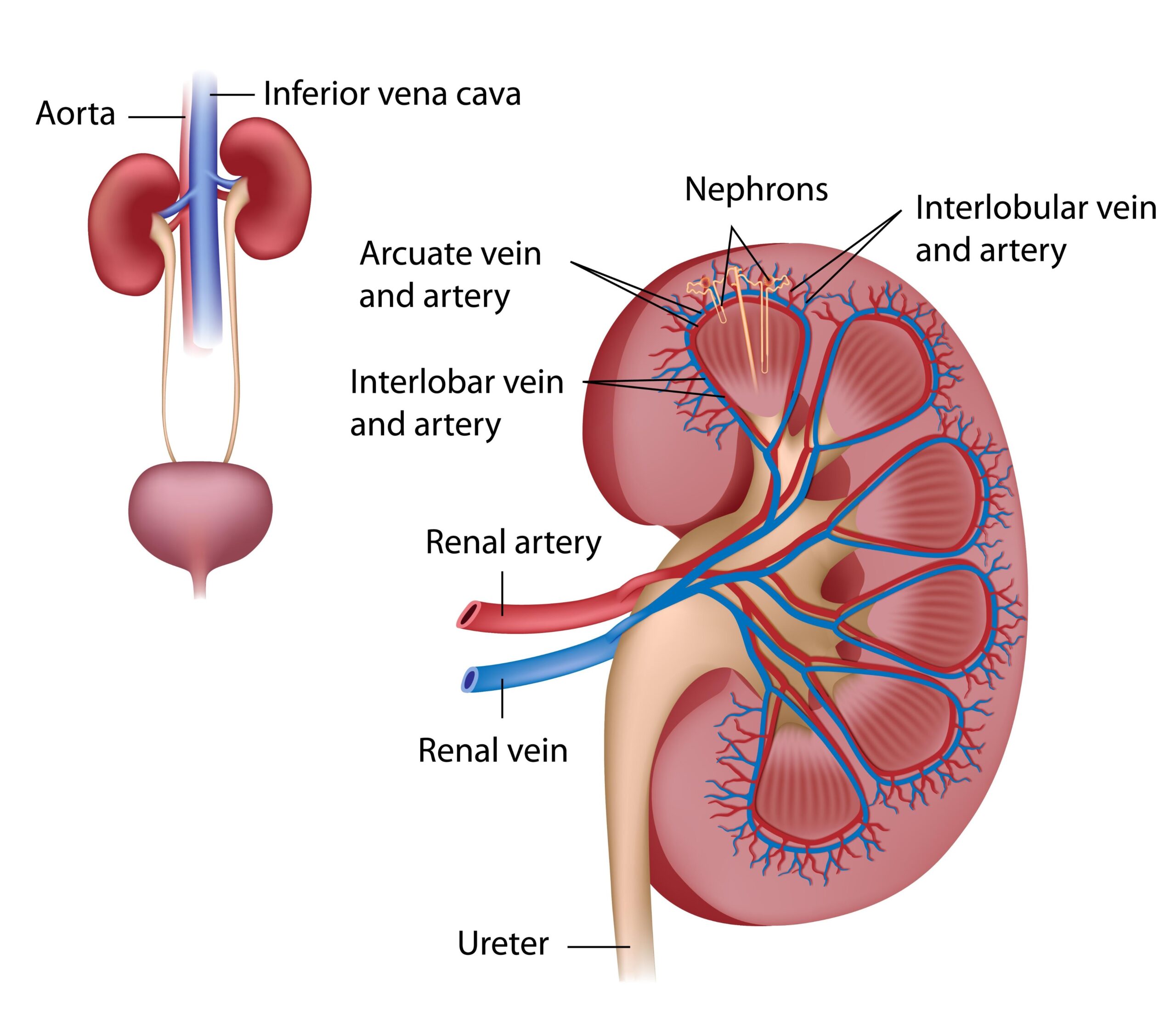From the heart of Los Angeles, where the pace of life can be as fast as the traffic, I see people every day who are living with a silent epidemic. It’s a condition that often has no symptoms until it’s too late, and it affects nearly half of all adults in the United States. I’m talking about high blood pressure, or hypertension.
For decades, the standard medical approach has been to treat this condition primarily with medication. While these pharmaceuticals are incredibly effective at lowering a number on a chart and preventing immediate, catastrophic events, they often don’t get to the root of the problem. As a functional and integrative medicine cardiologist, I believe in a different approach. My philosophy is not to simply manage a number, but to ask the most important question: Why is your body creating this high pressure in the first place?
Your body is an incredibly intelligent and interconnected system. It doesn’t do anything without a reason. When your blood pressure rises, it is a signal—a call for help from a system that is out of balance. My practice is dedicated to decoding that signal and working in partnership with you to restore harmony from the inside out. In this deep-dive article, we will explore hypertension from this holistic perspective, revealing the often-overlooked causes and the profound side effects of high blood pressure. Our goal is to empower you with knowledge and a new roadmap to sustainable cardiovascular wellness.
The Conventional View vs. The Functional Perspective
In conventional medicine, hypertension is defined as a systolic blood pressure reading of 130 mmHg or higher, or a diastolic reading of 80 mmHg or higher. A conventional cardiologist will typically prescribe one or more medications—such as ACE inhibitors, beta-blockers, or diuretics—to help relax blood vessels and reduce the force of the blood. And let me be clear: this is a crucial and often life-saving intervention. These medications are not to be dismissed; they are essential tools for immediate risk reduction.
However, the integrative approach goes further. It acknowledges that those medications are often a stop-gap measure while we work to fix the underlying issues. The question isn’t just “How do we lower this number?” but “What is causing the need for your body to increase this pressure?” A functional medicine practitioner understands that there isn’t a single cause for high blood pressure, but rather a complex interplay of lifestyle, genetics, and environment. We see the body as a whole, and we understand that a problem in one area—say, your gut or your stress levels—can manifest as a cardiovascular issue. By addressing the root causes, we can often reduce the need for medication and, in some cases, even resolve the condition entirely.
This is a paradigm shift. We move from a model of reaction—treating a symptom after it appears—to a model of proactive, personalized health.
Uncovering the Root Causes of Hypertension
The journey to resolving high blood pressure begins with a thorough investigation. Instead of simply measuring a number, we analyze the intricate web of factors contributing to it. Here are some of the most common root causes of hypertension that we uncover in my practice:
- Chronic Inflammation:
Inflammation is your body’s natural response to injury or infection. But when it becomes a chronic, low-grade process, it can wreak havoc on your cardiovascular system. Inflammatory markers can damage the delicate lining of your blood vessels, known as the endothelium, causing them to become stiff and less pliable. This is a primary driver of hypertension. Sources of chronic inflammation can include a diet high in processed foods, sugar, and unhealthy fats, as well as unaddressed infections or autoimmune conditions.
- Insulin Resistance and Metabolic Dysfunction:
The way your body processes sugar has a direct impact on your blood pressure. Insulin resistance, a condition where your cells become less responsive to the hormone insulin, forces your pancreas to produce more of it. High levels of insulin can cause your kidneys to retain sodium and water, which in turn elevates your blood volume and, consequently, your blood pressure. Addressing underlying metabolic health through diet and exercise is a cornerstone of our approach to hypertension and is often the first step in a patient’s journey to better health.
- The Stress Connection: Cortisol and the Fight-or-Flight Response:
In today’s world, chronic stress is an inescapable reality for many. When you are under stress, your body releases hormones like adrenaline and cortisol. Adrenaline causes your heart to beat faster and your blood vessels to constrict, leading to a temporary spike in blood pressure. If this response is constantly triggered—as it is with chronic stress—it can lead to persistent hypertension. We work with patients on stress-reduction techniques, including mindfulness, meditation, and breathwork, to help regulate their nervous system and, in turn, their blood pressure.
- The Gut-Heart Axis:
You might not think of your digestive system when you think of your heart, but the connection is undeniable. The health of your gut microbiome—the trillions of bacteria that live in your digestive tract—can directly influence your cardiovascular health. A diet that damages the gut lining can lead to “leaky gut,” allowing inflammatory particles to enter the bloodstream and contribute to chronic inflammation, a known driver of high blood pressure.
- Nutritional Deficiencies:
Your body relies on a delicate balance of minerals and vitamins to function correctly. Deficiencies in key nutrients can impair your body’s ability to regulate blood pressure. For example, magnesium helps to relax blood vessels, while potassium helps to balance sodium levels. Insufficient intake of these minerals, along with other nutrients like Vitamin D and Coenzyme Q10, can contribute to hypertension.
The Far-Reaching Side Effects of High Blood Pressure
While the immediate concern with high blood pressure is the risk of a heart attack or stroke, the long-term damage is far more insidious and widespread. The constant force of the blood against your artery walls can damage blood vessels throughout your body, leading to a cascade of complications. The side effects of high blood pressure can affect almost every major organ system, often with devastating consequences.
- The Heart: Your heart is a muscle, and when it has to work harder to pump blood against high pressure, it can thicken and enlarge. This condition, called left ventricular hypertrophy, can make the heart less efficient over time, leading to congestive heart failure. It also increases the risk of coronary artery disease, where plaque builds up in the arteries that supply blood to the heart muscle.
- The Brain: The brain is highly sensitive to changes in blood flow. Uncontrolled hypertension is a leading cause of stroke, which occurs when a blood vessel to the brain is blocked or bursts. It can also lead to vascular dementia and other forms of cognitive decline, as the constant pressure damages the delicate blood vessels that supply the brain with oxygen.
- The Kidneys: Your kidneys are responsible for filtering waste from your blood. The tiny blood vessels in the kidneys are particularly vulnerable to the damage caused by high blood pressure. Over time, this can impair their ability to function, leading to chronic kidney disease and, eventually, kidney failure.

- The Eyes: The small, delicate blood vessels in your eyes can also be damaged by hypertension. This can lead to a condition called hypertensive retinopathy, which can cause blurred vision, double vision, and, in severe cases, blindness.
- Sexual Health: In men, high blood pressure can damage the lining of the blood vessels, leading to a lack of blood flow to the penis and contributing to erectile dysfunction. In both men and women, hypertension can reduce blood flow to other organs, potentially decreasing sexual desire and satisfaction.
Understanding these profound side effects of high blood pressure is not meant to scare you, but to empower you. It highlights the urgent need to address this condition proactively and comprehensively, not just with medication but by getting to the root of the problem.
Your Roadmap to Lasting Heart Health
The good news is that hypertension is often a reversible condition when approached with a functional medicine mindset. It requires a partnership between you and your doctor, a commitment to lifestyle changes, and a willingness to explore the deeper causes of your health.
Here is a glimpse into the roadmap we might create together:
- Foundational Nutrition: We will move away from a diet of processed foods, sugar, and unhealthy fats and toward a nutrient-dense diet rich in whole foods, vegetables, fruits, healthy fats, and lean proteins. This isn’t about deprivation; it’s about giving your body the building blocks it needs to heal.
- Movement as Medicine: Regular exercise is one of the most powerful tools for lowering blood pressure. We will create a personalized exercise plan that combines cardiovascular exercise, strength training, and flexibility to support your body’s natural healing processes.
- Strategic Stress Management: It is impossible to eliminate stress, but we can learn to manage our body’s response to it. We will explore techniques such as yoga, meditation, deep breathing exercises, and time in nature to help regulate your nervous system and reduce the burden of chronic stress.
- Optimized Sleep: Sleep is a non-negotiable component of heart health. We will focus on improving sleep hygiene and addressing any underlying sleep disorders, such as sleep apnea, which are often significant contributors to hypertension.
- Targeted Supplementation: Based on your specific needs, we may recommend targeted supplements to address nutritional deficiencies and support cellular health. These may include magnesium, potassium, CoQ10, fish oil, and others that are carefully selected based on your unique biochemistry.
Conclusion
If you have been diagnosed with high blood pressure, it is not a life sentence. It is a powerful signal from your body that things are out of balance. As an integrative and functional medicine cardiologist, my mission is to help you decode that signal. I am dedicated to working with you to uncover the root causes of your hypertension and create a personalized roadmap to not just manage your blood pressure, but to restore your health and vitality from the inside out.
Dr. Cynthia, a leading functional and integrative cardiologist, helps patients uncover the root causes of their cardiovascular concerns. Her compassionate, personalized approach goes beyond traditional treatments to create a roadmap for true wellness. Whether you prefer a comprehensive clinic visit or need the flexibility of a secure, online telehealth consultation from anywhere in Los Angeles California, your journey to a healthier heart starts now.
Schedule an appointment with Dr. Cynthia Thaik, today and experience compassionate, personalized care across Burbank, North Hollywood, Greater Los Angeles, Bakersfield, and the Kern Valley.
Your heart deserves a holistic, compassionate, and comprehensive approach. It’s time to move beyond the numbers and begin your journey toward lasting wellness.
Take control of your health and schedule your consultation today.





